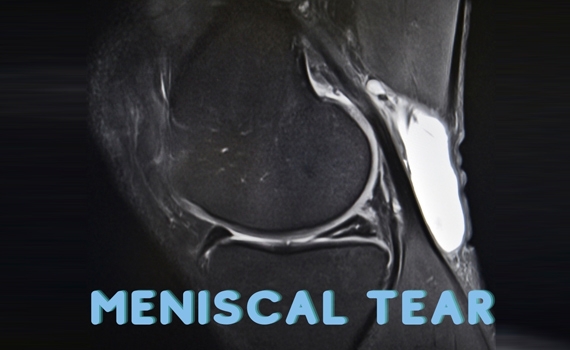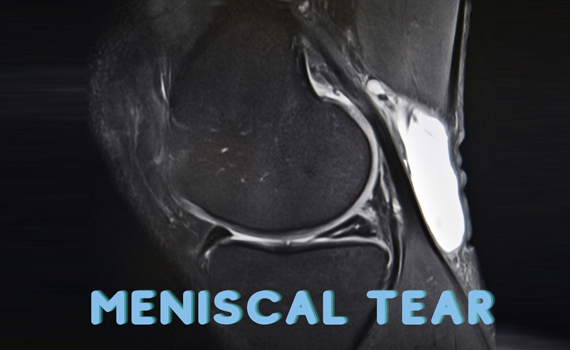

What is a meniscal tear?
A meniscal tear is a very common knee injury, but what is a meniscus? At the end of your thigh bone, at the knee joint are two c-shaped discs made of a rubber-like material which mainly act as shock absorbers of the knee joint – each one of these is called a meniscus. The two menisci, as well as aiding shock absorption, help with weight distribution across the knee joint helping with stability. A torn meniscus can have severe effect on someone’s knee function and stability.
How can a meniscus become torn?
A meniscal tear can usually be linked to a quick twisting or turning, pivot like movement. When this happens, the foot is normally planted on the ground, the knee bent and as this happens weight is loaded on to one side of the knee joint, putting excessive pressure on the meniscus. The risk of a meniscus tear increases with age as the meniscus can break down (degenerate) as we age.
How would you know you had a meniscal tear?
Depending on the severity of the meniscal tear the symptoms will differ:
- A minor tear will give some pain for 2-3 weeks and some swelling
- A moderate tear usually gives pain at the centre of the knee and swell for 2-3 days after the injury. The knee may also have a reduced range of movement. People sometimes report of a sharp pain that occurs with twisting of the knee.
- A severe tear is often associated with a ‘pop, lock or catching’ of the knee accompanied with a wobbly knee which is hard to bend. This will also come with swelling and pain
How do we treat a meniscal tear?
Depending on the symptoms and severity of the tear, as well as age and health of the patient, there are differing treatment options.
- RICE (rest, ice, compression and elevation)
- Physical therapy of the knee joint
- Partial or full surgical removal of the meniscus
If you believe that you have a meniscal tear that is failing to settle down then please get in touch and we would be happy to advise.
This article is intended to inform and give insight but not treat, diagnose or replace the advice of a doctor. Always seek medical advice with any questions regarding a medical condition.










